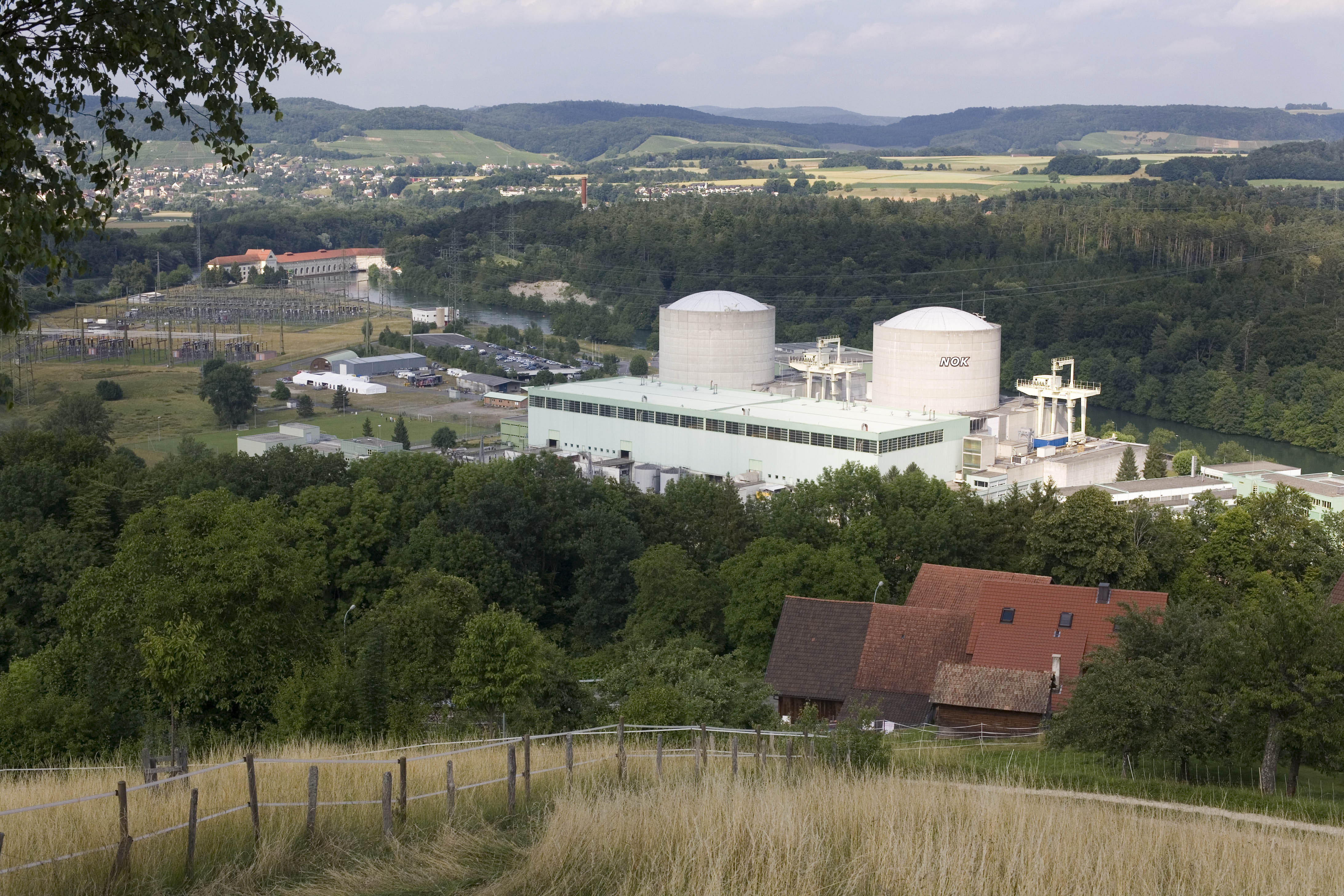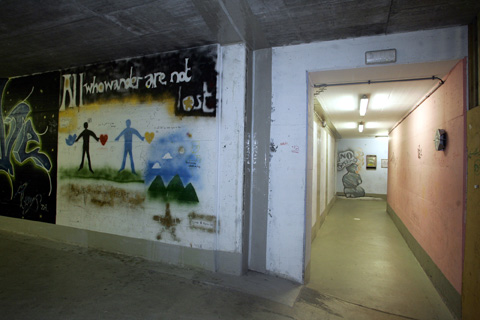Young people come out against nuclear power

The accident at the Fukushima atomic plant in Japan has reignited debate in Switzerland about nuclear energy – especially among young people.
Pupils organised a recent anti-nuclear demonstration on Bern’s parliamentary square and young people have also been protesting outside the Bern headquarters of BKW Energy, the company behind the Mühleberg atomic plant.
Switzerland has five nuclear power stations, providing 40 per cent of the country’s electricity.
Following the Fukushima accident, Energy Minister Doris Leuthard announced that Switzerland would re-examine safety at plants and suspend temporarily requests for replacement facilities.
However, opposition to nuclear power seems to be growing. Around 1,000 people, young and old, turned out for the peaceful demonstration in Bern on April 6. The event was somewhat different to those put on by adults: on an improvised stage pupils and apprentices danced or sung in between the speeches.
The driving force behind the event was 15-year-old Alba Perez. “We are young now but one day we’ll be adults. We’re here because a new atomic plant is probably going to be built, at Mühleberg,” Perez said, referring to plans for a replacement plant at the present site in canton Bern.
“But when you see what has happened in Japan, it’s not realistic.”
The young protestors publicised their demonstration through their own Facebook group, media interviews and posters in schools in and around Bern.
“Wake-up call”
For many taking part, the risks of atomic power are too high. “If you really look into this, you realise that you don’t need atomic energy in such a highly developed country as Switzerland,” said 27-year-old Tanja.
Her boyfriend Roger, aged 30, added: “There’s so much technical information which shows that it’s really only a political issue why we are not changing to alternative energy.”
Watchmaking apprentice Richie said that damage to the Fukushima plant, following an earthquake and tsunami, had probably been a “wake-up call” for society.
But he sees some good coming from the situation. “Much of industry and employers were for a long time in favour of nuclear plants. Now they are starting to reconsider after the Fukushima accident. I hope they won’t forget about it again though, a bit like Chernobyl.”
Anti-nuclear protesters have also been camping on a lawn outside the Bern headquarters of BKW Energy.
Demonstrators – a group of young people who have simply come together and are staying in around 12 tents – have told Swiss public radio that they are aiming to stay until the BKW takes Mühleberg out of commission.
The Bern authorities, who own the lawn, have so far allowed the demonstration.
The 1970s and now
Aernschd Born, a singer-songwriter and icon of the 1970s anti-nuclear movement, has been observing the development of anti-atomic feeling among young people.
“They are creating a small movement within a large movement which is beginning to grow bigger,” he told swissinfo.ch. “A movement grows when many small individual groups become active independently.”
Born was involved in the 1975 ten-week occupation of land at Kaiseraugst near Basel, which was to be the site of a nuclear power station. Plans for the plant were shelved in the 1980s.
The 61-year-old Born is still campaigning and is the head of two anti-nuclear groups. He also is helping to organise a huge march near the Beznau plant – the oldest nuclear plant in Switzerland – on May 22.
Born said much about today’s movement was the same as 36 years ago: it’s made up of the old and young, people from the political left and without political orientation, as well as those wanting to protect the countryside.
“What is new is that we now have the real possibility of being able to produce our electricity in a different way, by the sun, wind and the earth. We didn’t have that in 1975.”
Born said that he could certainly feel a “Fukushima effect”.
“I think that a rethink is taking place not only among young people – although beforehand lots of young people didn’t really have this issue on their radar – but also among centre-right politicians who would have a big influence on whether we stop using nuclear power,” he said.
The youth against atomic power committee was founded by eight young people aged between 14 and 21 following the Fukushima disaster in Japan. It aims to show that young people can also get involved in environmental issues.
They produced banners, flyers and T-shirts for the demonstration.
Also taking part were environmental group Greenpeace, the Green party and youth branches of various political parties.

In compliance with the JTI standards
More: SWI swissinfo.ch certified by the Journalism Trust Initiative















You can find an overview of ongoing debates with our journalists here . Please join us!
If you want to start a conversation about a topic raised in this article or want to report factual errors, email us at english@swissinfo.ch.